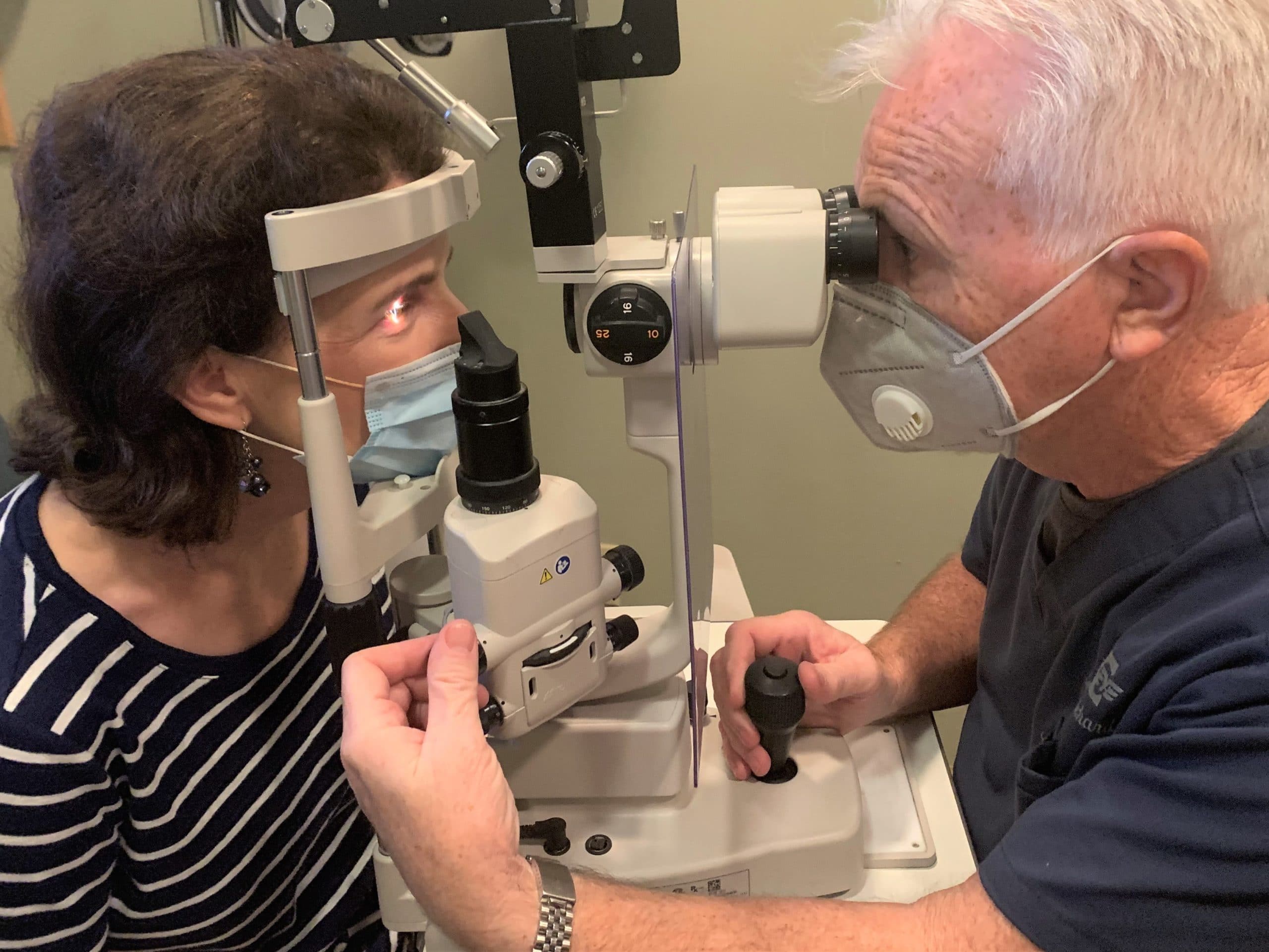Stay Ahead of These 4 Age-Related Eye Diseases to Protect Your Eyesight
With advanced healthcare and the modern rise in life expectancy, many retirees are finding their “golden years” can be long and fruitful. Even so, they must remain vigilant about their health—especially their eyesight.
Most people encounter the effects of aging in their forties when they start wearing “reading” glasses. There are, however, more serious age-related eye conditions—four diseases in particular that can cause significant vision loss or even blindness.
During Healthy Aging Month in September, the American Academy of Ophthalmology calls attention to these vision-robbing diseases older people may encounter. Being on alert for them could ultimately save your vision.
Cataracts. Cataracts occur when the natural lenses cloud up, causing haziness, dullness of colors or haloes around lights at night. But Dr. Richardson, an ophthalmologist with Hattiesburg Eye Clinic, also says there’s never been a better time for cataract treatment.
“Using a surgical laser system called CATALYS® we can remove the clouded lens with great precision and replace it with an artificial lens. These advanced lenses can not only restore clearer sight, but also relieve some patients of the need for glasses.”
Age-related Macular Degeneration. This disease gradually degrades the macula in the retina responsible for detailed vision, which can cause patients to lose their central vision. If not caught and managed early, it could result in permanent vision loss.
“We’re most concerned when blood begins to leak around the macula, which can accelerate vision impairment,” says Dr. Richardson. “But injections of medication before then, along with vitamin therapy with Lutein, can help stymie the disease’s advance.”
Glaucoma. One of the leading causes of blindness, glaucoma is caused by high fluid pressure in the eye that ultimately damages the optic nerve. It’s a silent vision thief that does its damage over many years. Fortunately, it can be managed and treated when caught early.
“We have several options, from daily medicated drops that regulate eye pressure to surgical laser treatments and stents that can correct the eye’s fluid drainage system,” says Dr. Richardson.
Diabetic Retinopathy. Over a quarter of Americans over 65 have diabetes, a chronic disease that can create numerous health problems throughout the body. The eyes can be affected when blood vessels begin to leak, which can interfere with the retina detecting and transmitting images to the brain.
“In addition to general health management, diabetics should also have their eyes examined for any signs of diabetic retinopathy,” says Dr. Richardson. “There are treatments available to limit the effect of the disease on the retina with very positive outcomes for preserving sight.”
Although different in nature, these four diseases do share a common characteristic—they often begin “under the radar” earlier in life and gradually worsen over time.
“They often begin with little or no symptoms,” says Dr. David Richardson. “When the person finally begins noticing vision problems, the disease is often well advanced.”
Fortunately, your eye doctor can usually detect the beginning stages of eye disease during a routine exam. Everyone should undergo an annual eye exam beginning at age 40, with those with a family history of glaucoma or diabetes starting earlier.
And if you’re already noticing abnormal changes in your vision, make an appointment with your eye doctor as soon as possible. If you’re experiencing one of these destructive diseases, the earlier it’s diagnosed and treatment begins, the better your chances of saving your sight.
For more about protecting your eyesight as you age, visit us at HattiesburgEyeClinic.com
To learn more about how Hattiesburg Eye Clinic can improve your family’s vision health, call 601-268-5910 (or toll-free 800-624-8254) or schedule a consultation with us .



